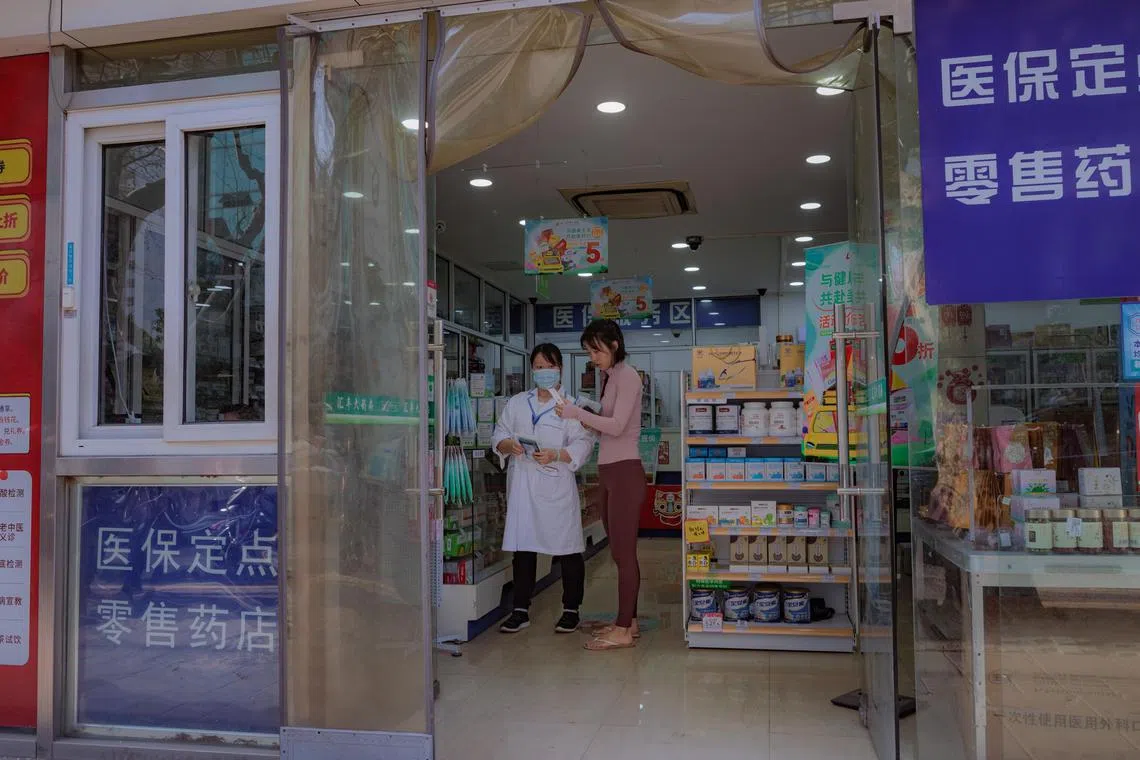Chinese hoarding flu pills with online sales surging hundredfold
Sign up now: Get insights on Asia's fast-moving developments

The medicine, sold under the generic name oseltamivir, saw sales volume surge to about 533,100 units in the first 13 days.
PHOTO: EPA-EFE
BEIJING - Chinese citizens are stocking up on antiviral flu drugs, sending e-commerce sales volume up more than a hundredfold from a year ago, as a spike in infections triggers panic and hoarding following the country’s chaotic exit from the Covid-19 pandemic.
The medicine, sold under the generic name oseltamivir, saw sales volume surge to about 533,100 units in the first 13 days of March on Chinese e-commerce platforms Taobao and Tmall, according to analytics tracking site Liandanlu.
The daily average volume jumped 129-fold from a year ago – when aggressive Covid-19 measures limited all types of infections – and has nearly tripled from February’s already elevated levels.
“People are more likely to panic following the massive Covid-19 outbreak earlier,” said Mr Wang Ruizhe, a Shanghai-based healthcare analyst with Capital Securities Corp.
“That, combined with a relatively low stock of the antiviral drugs, led to a temporary supply-demand mismatch and price hikes,” he added.
The rush for medicine underscores the high levels of anxiety and distrust in China, where hospitals were overwhelmed
As influenza cases picked up after social activities resumed, people hurried to get the prescription pills in hopes of avoiding a repeat of the Covid-19 desperation.
“It seems some people are hoarding the antiviral drugs this time,” Mr Wang said.
“The spread of flu among children is fanning anxiety among parents. The impact of the earlier Covid-19 wave may have also fuelled concern.”
As oseltamivir is most effective when taken quickly after infection, most newly diagnosed patients who need the pills would be offered them immediately.
Thus, only hospital sales tend to reflect the real demand for treatment, while the surge in e-commerce sales volume points to more precautionary purchases, Mr Wang said.
Keeping up with demand for antiviral flu drugs has not been easy.
Supplies started to run out in February, with empty shelves reminiscent of the frenzy triggered by the Covid-19 outbreak that accompanied the country’s reopening.
At some shops on Taobao, the drug remains out of stock, while others are limiting purchases to one per person.
Flu cases, meanwhile, are rocketing.
The positivity rate – the number of people who find out they are infected after getting tested – was 42 per cent in the week beginning March 5.
It was up from 25 per cent a week earlier, the Chinese Centre for Disease Control and Prevention said in its Covid-19 surveillance report on Saturday.
It is the opposite for Covid-19, with the positivity rate falling to 3.8 per cent from 5.1 per cent.
The hunt for medicine has become widespread.
Online searches for the word “oseltamivir” on China’s popular search engine Baidu rocketed to the highest level since at least 2011, suggesting people are trying to get more information about the drug.
The peak interest level is about four times the seasonal highs seen prior to Covid-19. BLOOMBERG


